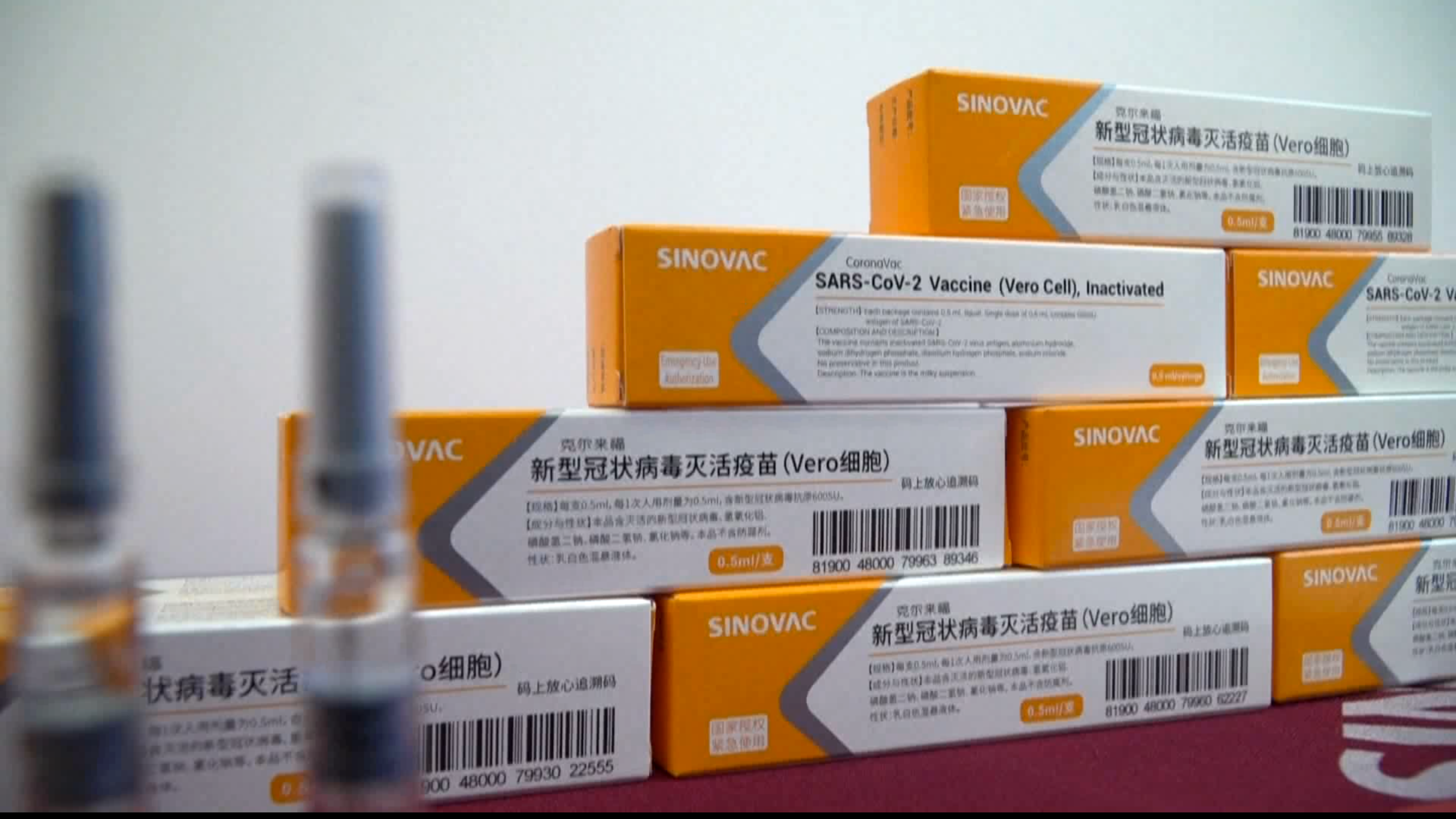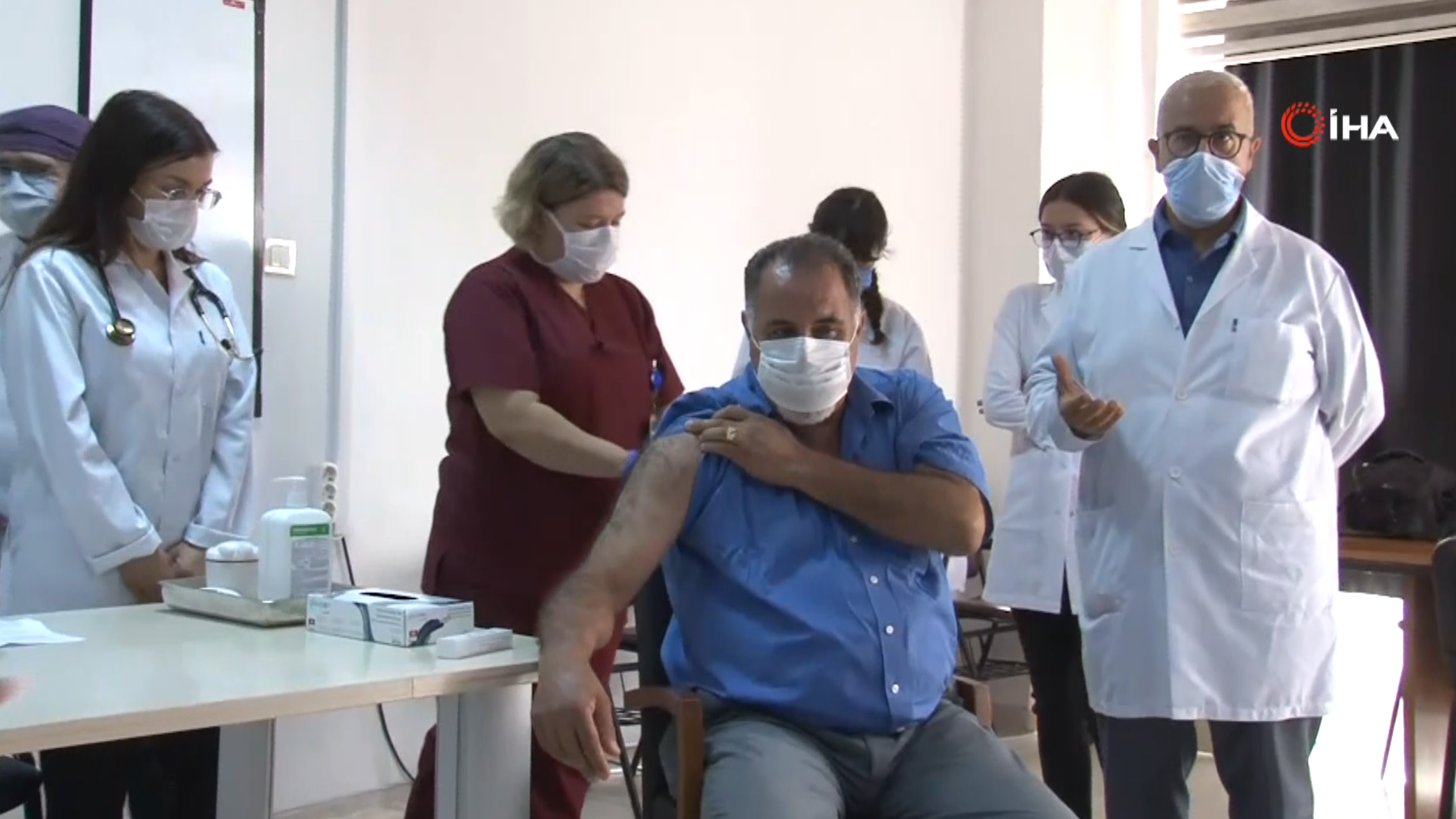
Turkey is one of three countries conducting clinical trials of Sinovac - the experimental Chinese coronavirus vaccine. /AFP
Turkey is one of three countries conducting clinical trials of Sinovac - the experimental Chinese coronavirus vaccine. /AFP
Dr. Fehmi Tabak, head of the Infectious Diseases and Clinical Microbiology Department at the Cerrahpasa Faculty of Medicine in Istanbul said that he is optimistic that the Phase 3 results of the Sinovac vaccine will be similar to those of the previous trials and the necessary approvals will be received soon.
"The side effects they have observed are no different than those seen in vaccines administered routinely during childhood," Dr. Tabak said, adding that none of the side effects are significant enough to disrupt the trials of this vaccine." These side effects are slight fever, muscle aches, fatigue and nausea.
Turkey's Health Minister Fahrettin Koca shares his optimism as he's already made some promising statements to Turkish citizens regarding the vaccine. Koca announced that they expect Turkey will receive 10 million Chinese vaccines in December and a second batch of 10 million vaccines in January. Koca added that negotiations are ongoing and that this number might even double.
Cerrahpasa Faculty of Medicine in Istanbul is one of the hospitals participating in the trials. Dr. Fehmi Tabak, who is working in the hospital said he is concerned about the rise in COVID-19 cases in Turkey, because "every hospital in Istanbul has had to set aside a significant number of its beds for coronavirus patients." Istanbul remains the city with the highest numbers of confirmed cases in the country.

Dr. Fehmi Tabak,(R) head of the Infectious Diseases and Clinical Microbiology Department at the Cerrahpasa Faculty of Medicine in Istanbul with volunteer. /İhlas News Agency
Dr. Fehmi Tabak,(R) head of the Infectious Diseases and Clinical Microbiology Department at the Cerrahpasa Faculty of Medicine in Istanbul with volunteer. /İhlas News Agency
In the beginning of the week, the Istanbul municipality announced it was taking several actions as well – cultural centers as well as sports facilities run by the municipality have been shut down.
COVID-19 cases have been surging in Turkey as more than 425,000 people have been infected. The country's president Recep Tayyip Erdogan announced new nationwide restrictions.
Erdogan stated partial lockdowns would resume across the country, from 8 p.m. to 10 a.m. over the weekends. In comparison to many EU countries – these restrictions are still modest.
Though restaurants and cafes have been ordered to offer only delivery services, other industries are continuing work as usual. That means millions are still going on with their daily routines, using public transportation and working in offices. Though working from home has been advised, it's not an obligation. Many experts are concerned the restrictions will not be enough to prevent the spread of the virus, but the government believes it is crucial to keep the economy rolling.
Therefore, people in Turkey are anxious for news of a vaccine. As the global race for a COVID-19 vaccine continues, the pandemic has pushed countries to cooperate with each other. Making the vaccine available to everyone is one of the priorities of international organizations, including the G20, which will hold a summit on November 21-22 in Riyadh.
Turkey is one of three countries conducting clinical trials of Sinovac – the experimental Chinese coronavirus vaccine.
Starting in September, the vaccine was given to around 12,000 health workers – with the aim to vaccinate 13,000 volunteer citizens. Two doses are being administered, with the second shot given 14 days after the first.

